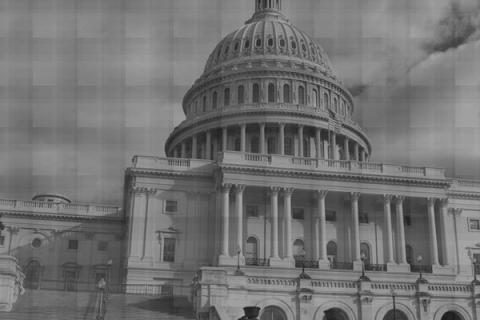Only two days after the second pointless special election in California's recent history, and the results are notencouraging for California's political class. What's more, if mostsources are to be believed, the turnout was apparently abysmal.
As the San Francisco Chronicle put it,"California voters showed little interest in Tuesday's specialelection, with most not bothering to cast ballots" - in fact, "roughly4 million of California's 17.1 million registered voters" went to thepolls, which is about 23% of the electorate. Lovely! All hail the newera of 20%+1 in California politics! Oh well, at least they votedintelligently - if by intelligently, one means "precisely the wayanybody with a halfway decent knowledge of political history would havepredicted the would vote."
Naturally, the election was not a complete failure - just as aboutone in five voters showed up for it, it's mathematically fitting thatonly one of the six propositions actually passed. That would be theLegislative Pay Freeze in Proposition 1F. However, the other five wentdown in flames by brutal margins of 60+ percent of the voters. More deservesto be said about the individual failures of each proposition (and thefreak success of the one), but suffice to say that now that we've allfound out again that California's people won't support raisingtaxes, "modernizing" unpredictable sources of income or cutting socialprograms geared toward the disadvantaged, some people are alreadytrying to pick up the pieces. And they all seem to know that it willnot be pleasant.
However, there is an oddity in the coverage of the election itself,which is the veritable avalanche of shock about how low the turnoutwas, as well as the numerous proposals for how to make it larger. In anopinion piece for the Los Angeles Times,commentator Joe Matthews suggested that the problem with the electionitself wasn't the pervasive sense of apathy, but rather that voterswere just unused to pulling the lever. "If we want to eliminate specialelections with long lists of measures, we need more regularly scheduledelections," Matthews wrote, reasoning that because California's peoplehad voted themselves so much power in politics, they therefore had totake more regular amounts of responsibility in hand for that power.
Matthews's system would make sense, if frequent "elections" by anoligarchic 20 percent +1 were the ideal he was reaching for. However, this isdubious, as there are all sorts of reasons why vesting extraordinarypolitical power with 20 percent of the electorate is not necessarily wise,especially when one doesn't know which 20 percent will actually show up at anygiven election. As such, not only are more elections the answer, somecommentators would argue, but people just need to care aboutthose elections, darnit! One blogger, apparently angry at the necessityof cuts in California's bloated 40 percent-of-the-budget education spending(most of it on teachers' unions), whined that "Lack of a well educated electorate has led people to make the poorfinancial decisions and poor voting choices that led to the currenteconomic mess. That same lack of education appears to have kept votersfrom the polls today due to the complexity of the propositions."
Let'sleave aside the absurdity of trying to throw money at a massivebudgetary entitlement like education. The appeal to voter education andknowledge is not an old one - many commentators have claimed thateducating the electorate would make for better voting decisions.However, as the smarter of these acknowledge, there are substantialobstacles to such education, some of them basically human. The mostobvious one (and the one which has damaged the California specialelection most) is detailed at great length in Bryan Caplan's book Myth of the Rational Voter.This phenomenon is referred to as "rational ignorance," a concept whichCaplan extends into the more pressing "rational irrationality." Thetheory goes as follows: Voters know that their individual votes areeffectively worthless. Therefore, they have no incentive to care aboutthose votes, and as such, they will make no effort to discover whichchoice of voting will actually be wisest. This leads to them eitherstaying home or voting arbitrarily.
Without going into too much detail, it's fairly obvious that themajority of California's people stayed home. It's also obvious that themajority of California's people did not vote in anything resembling aneducated fashion, as they rejected both the tax increases and thespending cuts as methods of curing fiscal trouble. The Governor and hisestablishment aides could have pre-empted this reaction by actuallydisplaying halfway decent political horse sense - instead, they threwgobs of money into a campaign which did nothing but scream, "WE'RE IN ACRISIS! GET TO THE CHOPPA!"
What a pity that because of their political insensitivity, we may now all be reduced to living like Conan the Barbarian.
